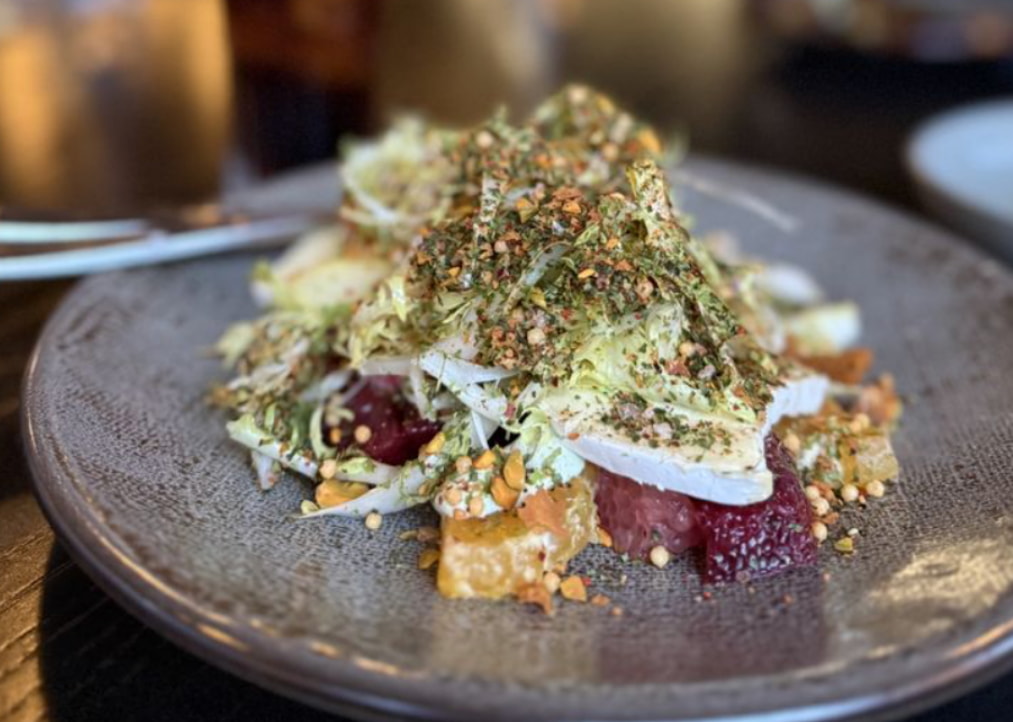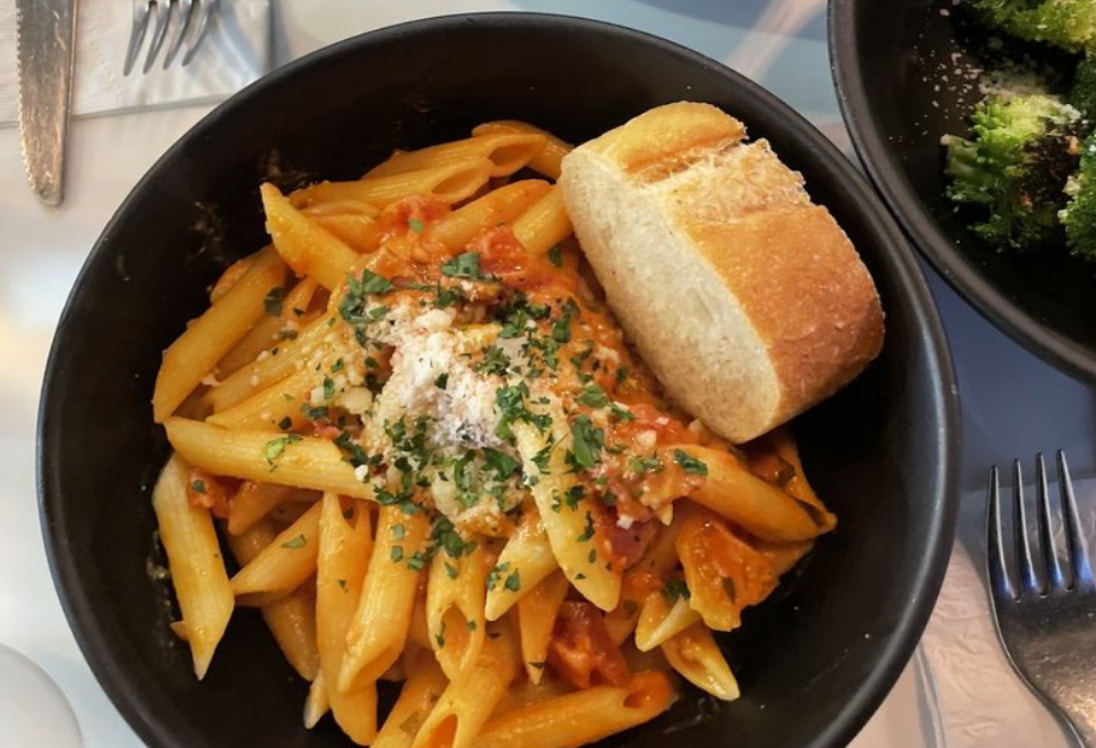
A good chef at a modern French restaurant knows a lot about cooking great food. These secrets can help improve your cooking skills at home as well.
Each chef has his style that he adheres to or an author's vision of already existing techniques. There are dishes for which the classic white plates are enough and those that need an original serving. But in this article, we'll tell you the basic secrets that everyone sticks to! I'm an essay writer, but when I use all of these tricks - guests think that I am a chef! They are very effective!
How do you create an incredibly velvety texture in a sauce?
Try adding a cold piece of butter to the sauce right before you put it on the plate, melt it by shaking the container. The flavor will intensify and become more complex. This is often why sauces in good restaurants are silkier than homemade ones. It's a simple step that can take your sauces (any!) to the next level.
Practice your knife skills and always keep your knives sharp.
As simple as it sounds, this is one of the most practical cooking tips: practice your knife skills. The best place to start practicing is on simple vegetables, such as potatoes and onions. What's the most important thing? Keep the knife sharp, and cutting will be much easier. And soon you'll be slicing everything like a pro.
Make sure you're using the right wine and that the wine you're cooking with is delicious.
When following a recipe that calls for a certain type of wine, don't just use whatever wine you have in the fridge. It can affect the flavor, the level of acidity can be too high or too low. Always stick to the recipe. And, of course, cook only with wine that tastes good. The wine doesn't have to be crazy expensive, but make sure it has enough flavor.
Throw away your stash of dried herbs, use fresh herbs.
Nothing affects a dish more than something chopped and added at the last minute (flavor!), or then decorating with fresh herbs. They add instant brightness to dishes and turn dull flavors into fresh ones. Stay away from dried herbs. They will never taste the same. Instead, buy fresh herbs and start adding them to your dishes.
Use a cartouche (small piece of parchment paper) instead of lids to better control cooking.
Is everything boiling over? Use a cartouche! (Aka, a small piece of parchment paper with a small hole cut out in the middle in a circle.) Cover stews, and broths. Cartouche preserves the flavor of whatever you're cooking in the pot by allowing a small amount of steam to escape. They help concentrate flavor and cook without losing liquid. If you just use a lid, the liquid doesn't evaporate, the dish won't turn out as flavorful as with a cartouche.
Butter + water = the easiest way to glaze vegetables.
An easy way to glaze vegetables in restaurants is to simply cook them on the stovetop in a three-ingredient glaze. All you need is butter, water, and seasoning. Just combine all three ingredients in a saucepan (a few tablespoons of butter and water and a pinch of salt/spice) with the vegetables and cook them slowly on the stove until the vegetables are soft and the butter and water turn into a glossy glaze. Cook by just rolling the vegetables in the glaze, adding a little water if the pan starts to look greasy. Your vegetables will turn out glossy and flavorful.
You can confit almost anything (cook something slowly in fat), and it's not as complicated as it sounds.
The term confit may seem complicated, but it's just a fancy word for slowly cooking something in fat. Restaurants cook a wide variety of foods this way, from garlic to tomatoes. The slow cooking process makes the dishes tender and concentrates the flavor. For most vegetables, the best fat for this cooking is olive oil. The tomatoes become sweeter, and the garlic begins to get that restaurant-quality deep-fried unforgettable flavor. This happens slowly, allowing the flavor to develop.
When it comes to butter, restaurants prefer quality over quantity.
Yes, butter is in almost everything, but less than you would expect. Chefs focus on using high-quality butter, not a lot of it at all. Good butter is rich, sour creamy, and strongly flavored. Once you start cooking with good products, you'll never go back to low-quality ones.
Make a Stockpile.
The next time you eat grilled chicken, don't throw away the leftover carcass. Make a broth out of them. The same goes for your vegetable scraps and onion skins! Learning the basics of making broth will not only take your cooking to the next level, but it will give you more options for what you can do. Yes, it's work, but the homemade stock will make your soups taste better. Fresh stock will also give you the ability to make delicious gravy as if it were from a professional kitchen.
Trae Bodge
Trae Bodge is the shopping expert here at GiftYa. Trae helps people find the best deals and ideas on popular new items to purchase.
Latest Posts

9 Incredible Speakeasies, Restaurants, and Bars You Can Find Right On Fremont Street in the Vegas Strip

There are plenty of black-owned restaurants in Vegas for you to try. Check out some of the best ones!

9 Incredible Speakeasies, Restaurants, and Bars You Can Find Right On Fremont Street in the Vegas Strip

There are plenty of black-owned restaurants in Vegas for you to try. Check out some of the best ones!

9 Incredible Restaurants You Can Find Right Off the Vegas Strip

Out and about in Las Vegas? Satisfy your stomach with exceptional meals from some of the best casual dining spots the city has to offer

A hotel, casino, entertainment, and multiple restaurants are all in one place to enjoy with friends and family in Sin City!

In Vegas But Casinos Aren’t Your Thing? Take a Bite Out of the City’s Culinary Scene Instead with Everything from 80s-Inspired Eateries to Out-of-This-World Indian Food

In Vegas Looking for a Unique Dining Experience? From Alien-Inspired Encounters to Eateries from Another Era, You Won’t Want to Miss Las Vegas’s Take on the Theme Restaurant

Best Restaurants In Downtown Flagstaff

Enjoy a The Biggest Blockbuster Hits of the Season from the Comfort of Your Car at These Drive-Ins from Summerlin to Henderson and Everywhere In Between
Latest Posts

From Beautiful Brunches to Chic Speakeasies to the Trendiest Dessert Spots in Town, These Are the Hottest Restaurants in The Windy City!

Find Out Firsthand How to Live “The Sweet Life” Like an Italian with Good Food, Fine Wine, and Even Better Company at These Top-Rated Denver Kitchens, Trattorias, and Pizza Joints

From Burbank to Downtown to Koreatown and Beyond, These Los Angeles Bars Are an Evening Destination All Their Own

Whether You’re Looking for Classic or Creative, the Boozy or Gone-Viral, This is Your Ultimate List of Must-Try Hot Chocolates in New York City This Season

Wings in Big-D Are Known for Their Big Flavor – So We’re Taking a Tour of the Can’t Miss Wing Spots in Dallas, Texas

8 Places to Find Amazing Burgers in the 5 Boroughs

A Rundown of the 9 Best Casual Restaurants in Dallas.

We’re covering where to eat, what to visit, and what to see!

The Coolest, Oldest, Comfiest, and All-Around Best Theaters Out of the Whopping 200 Movie Theaters in The Big Apple

From Beautiful Brunches to Chic Speakeasies to the Trendiest Dessert Spots in Town, These Are the Hottest Restaurants in The Windy City!

Find Out Firsthand How to Live “The Sweet Life” Like an Italian with Good Food, Fine Wine, and Even Better Company at These Top-Rated Denver Kitchens, Trattorias, and Pizza Joints















